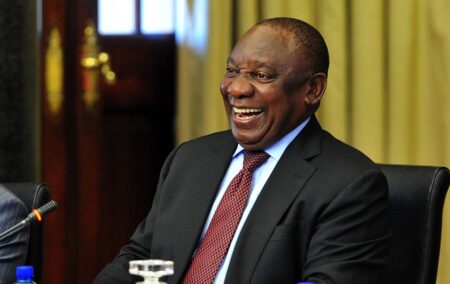Earlier this week President Cyril Ramaphosa had a virtual meeting with 90 business leaders to discuss the recent unrest and violence that occurred in KwaZulu-Natal and Gauteng.
In his speech Ramaphosa said that no part of the economy would be unaffected by the violence that occurred, and every part of the country would feel the effects of the unrest due to the way the country’s supply chains function.
Said Ramaphosa: “We cannot understate the impact on the country of the disruption, destruction and looting that took place last week. Together, KwaZulu-Natal and Gauteng account for 50% of GDP, and are home to 45% of all South Africans.”
The violence and unrest did enormous damage to South Africa’s reputation globally as well as to the economy, with some analysts estimating the total damage to be somewhere around R50 billion in Gross Domestic Product (GDP).
The President admitted that his government had not been prepared to deal with the violence and looting that occurred on such a big scale. He also said that the capabilities of the state have been eroding over the last few years.
“We need to acknowledge the impact of state capture and that the hollowing out of institutions had a direct impact on the capabilities of the state. We have made important progress to take corrective measures, but there is much more work to be done,” said Ramaphosa.
Ramaphosa said that the first priority for government was to recover from this blow and to maintain stability going forward.
“We have significantly increased the presence and visibility of security forces on the ground in KwaZulu-Natal and Gauteng. The bulk of the 25,000 SANDF personnel has been deployed in support of the police and other law enforcement agencies.”
Government’s second priority was to secure the country’s supply chains, especially in terms of essential supplies, said the President.
“We need to take every available step to ensure the return of our ports and rail lines to full operation, restore manufacturing capacity of vital goods as quickly as possible and put in place contingency measures where facilities have been badly damaged or stocks looted or destroyed.”
The third priority was to assist by providing relief and starting to rebuild what has been destroyed.
Said Ramaphosa: “We are in the process of providing immediate food relief to households. We are targeting areas affected by the looting and where people have no access to food. Provincial Departments of Social Development and SASSA are providing support in the form of food parcels, cash and food vouchers.”
The relief package aims to:
- Respond to the immediate needs of poor households affected by both the pandemic and the recent violence;
- Help businesses to rebuild in the aftermath of looting and destruction of property;
- Support sectors that are affected by restrictions on economic activity; and
- Contribute to the longer-term goal of increasing growth, boosting employment and eradicating poverty.
According to the President: “This package will include both the extension and repurposing of some of the Covid-19 relief measures and specific relief for sectors affected by the violence like retail and property,”
Lastly, the government’s fourth priority was ‘accelerating inclusive economic recovery’.
Said Ramaphosa: “The violence and destruction of the last two weeks have provided the starkest reminder of what is at stake. It has exposed several of the social and economic faultlines in our society and underlined the urgent need to decisively address poverty, inequality and unemployment.”
The President said that it was important that South Africa’s recovery plan speeds up the transformation and restructuring of the economy so as to create opportunities for the millions of unemployed South Africans.
Continued Ramaphosa: “We need to work jointly – as government, business and labour – to reassure investors and to continue to promote the diverse investment opportunities that exist in our country. To this end, we should consider undertaking joint ‘roadshows’ to engage with investors in key centres to convey a common message.
“The actions we take now must make a visible impact on the lives and living conditions of the majority of South Africans.”

